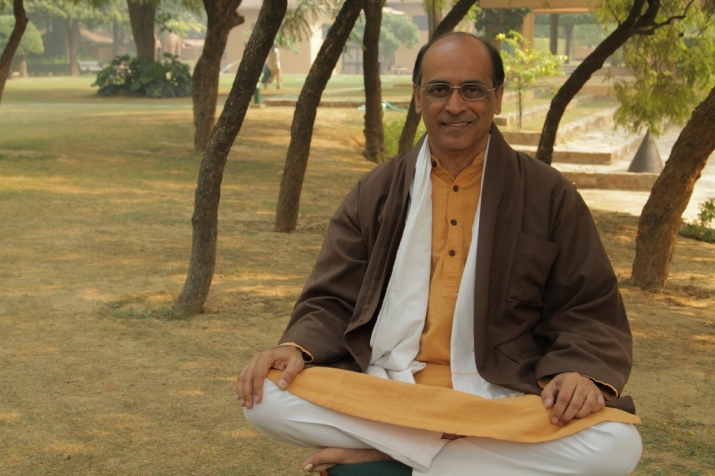NEWS
“Culturally Hindu, Spiritually Buddhist”—Middle-class Indians Turn to Buddhism
 Shantum Seth. From flickr.com
Shantum Seth. From flickr.comBuddhism is enjoying a surge of interest among a once impervious demographic: middle-class Indians in urban areas.
While the narrative of its complete extinction in medieval India is problematic, Buddhism is nevertheless a minority religion in its home country today. It is currently supported by the impoverished but politically powerful Dalit community, as well as ethnic minorities such as the Mog, Chakma, Barua, and Uchai in states like Tripura. The new crop of urbanites subscribing to Buddhist practice encompasses a diverse spectrum of people and professionals ranging from students to wives, mothers, and businesspeople.
According to a January article on Catch News by Lamat R. Hasan, these demographics are turning to Buddhism for its practical solutions to rising stress levels, methods of cultivating peace with oneself, and openness to non-Buddhist cultural practices (in this case, Hindu ones). This distinction between Buddhist “non-Indian-ness” and Indian Hindu culture (which is ironic given Buddhism’s origins) becomes apparent with the Bharat Soka Gakkai, which emphasizes the Japanese chant “Namo myoho renge kyo.” According to Hasan, this Nichiren-inspired school is the most popular one in India, although other Mahayana schools are finding a growing following as well.
One of these Indian Buddhists is Shantum Seth, a lay teacher in the Plum Village tradition. In a casual exchange last year, Shantum spoke to me about his initial difficulties with reconciling his conventional Hindu identity with his spiritual beliefs: “Those of us who feel spiritually Buddhist still find it difficult to pull away completely from our Hindu identity, which is everywhere in India. So we still feel culturally Hindu,” he said. He has praised the non-sectarian and open teaching style of the Vietnamese Buddhist master Thich Nhat Hanh, which he feels is attractive to people immersed in religious culture from birth.
In her article, Hasan offered a few probable reasons why Hindus are not finding it hard to convert to Buddhism: “Most of those adopting Buddhism are Hindus though followers from other faiths are not unusual. Most find the transition from Hinduism to Buddhism easy—largely because Buddhism doesn’t interfere with their existing belief systems. That means many feel that it is possible to be part-Hindu, part-Buddhist.” Words used by Indian Buddhists that she interviewed include: liberating, positive, stronger, calmer, and more in control of emotions.
“Even those conflicted at the prospect of changing their religion find it easy to see Buddhism as a philosophy rather than religion, since its beliefs don’t contradict anything in their own religion,” wrote Hasan. “Clearly, implicit in Buddhist practice is that it doesn’t seem to require renouncing the religion you come from. That makes a crossover of beliefs not just easy but seductive.”
Not everyone welcomes the resurgence of Buddhism in the urban, middle-class conclaves of New Delhi or Mumbai. “Even today, some Indians of higher castes associate Buddhism with the activist goals of the Dalits,” said Shantum. “This is really problematic as the Dalits have a very political form of Buddhism that feels exclusionary and political to many. We need urgently to change this perception if more Indians are to appreciate the depth and diversity of Buddhism.”
“For now, it seems like millions of urban Indians are happy to find a medium between the religion they were born into, and the one that speaks to them—especially because they’re not being pushed into a corner and asked to choose,” said Hasan in her conclusion. “While other religions may battle it out for supremacy, we may already have the winner under our very noses.” We may well be seeing many more stories like Shantum’s and those in Hasan’s article in the years to come.
See more
The rise of Buddhism: why urban India can’t get enough (Catch News)
Bharat Soka Gakkai














